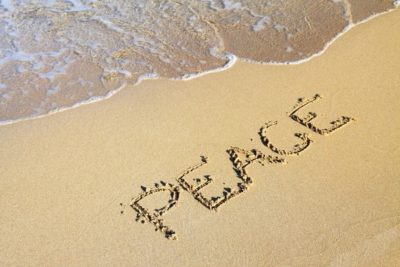Is it Safe to Trust
Is it safe to trust? To be more specific, is it safe to trust the power of the Spirit as she seeks to lead us bravely down the unknown corridors of this and ever day of our lives; and it was the fundamental question with which the exiled Jews of Babylon were faced. It’s the question to ponder on Trinity Sunday.
It is generally agreed by most biblical scholars that the book of Genesis is not one of the oldest books of the Bible and that, in all probability, it was written sometime during the 6th century B.C.E. and was addressed to that remnant community of exiled Jews who had been dragged off into bondage.
The problem for those oppressed people was the Babylonian gods seemed to control the future. Their enemies, it appeared, had defeated them; and the Jewish people were feeling decidedly hopeless.
In answer to this dilemma, the book of Genesis was written, not to make a scientific claim about how the world was made, but to make a confession of faith about why it was made. The single most important purpose the author or authors had in mind was to say God still moved over the dark waters of life, brooding over it and seeking to bring forth life; and the word the Bible uses in verse 2 when it says that a wind from God, or the spirit of God, swept over the surface of the waters which more literally translates “to brood”, the way a mother bird broods over her nest until new life begins to stir.
It is a powerful image when you stop to think about it; and what it was intended to mean is there is no chaos, no darkness in which you or anybody else finds themselves out of which God cannot still bring forth life.
That was the question with which our ancestors in the faith struggled: could God bring forth life out of their seemingly dark and hopeless situation? Could life still begin again for them? Was new life stirring in the midst of the death-ridden waters of their times? Was it safe to trust? Was it safe to hope? Was it safe to go on living their lives as bravely and as graciously as they could, believing that the light would one day begin to shine?
It was the only question that mattered to them; and, in a sense, it is the only question that really matters in the end to any one of us.
There is a sin against the Holy Spirit, my friends. It is seldom talked about in the church anymore; but that does not mean it is seldom practiced. In fact, it is practiced all of the time; for it is the sin of despair. It is the sinning of giving up, of giving in, of surrendering to the forces of darkness and hopelessness. It is the sin of choosing to live dull, drab, safe, complacent, mediocre lives when the Spirit is urging us to be more.
We live floating on a sea of grace. If we manage to get through our lives, without ever getting wet for fear of drowning in the graciousness that surrounds us, we will have no one to blame but ourselves; for the Good News is the spirit is indeed renewing the face of the earth. She always has and she always will; and she will renew us if we give her the slightest chance. But if we are successful in escaping her enticing offer and never do take the chance of living as bravely and as humanly as we have it in us to be, then we should not be surprised when on judgment day, we hear Spirit herself saying to us, “What in the world did you think those great wings were flapping above you your whole life long?”


